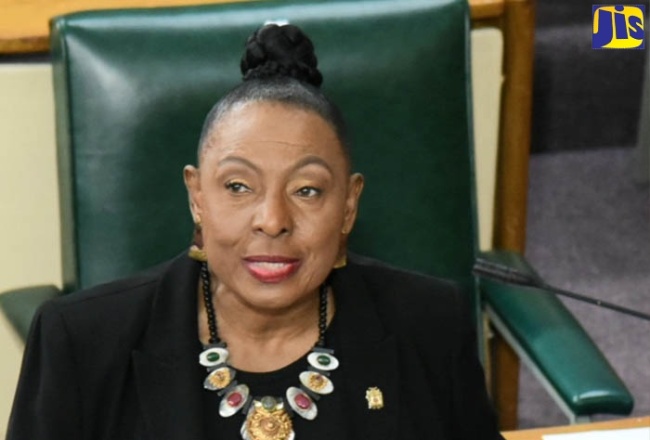Law Ushers In Measures to End Sexual Harassment
By: , July 4, 2023The Full Story
The Sexual Harassment (Protection and Prevention) Act, 2021, which took effect yesterday (July 3), is being hailed as an important piece of legislation in ushering in concrete measures to protect the vulnerable and promote cultural change to end sexual harassment.
The legislation addresses concerns about sexual harassment that are employment-related, occurring in institutions, or arising in the landlord and tenant relationship.
Contained are provisions for dealing with sexual harassment in the workplace, schools, correctional institutions, places of safety, nursing homes, medical and psychiatric facilities, among other places.
In her contribution to the 2023/24 Sectoral Debate in the House of Representatives on June 13, Minister of Culture, Gender, Entertainment and Sport, Hon. Olivia Grange, advised that mechanisms were being put in place to investigate and adjudicate complaints of sexual harassment.
She informed that four sexual harassment investigators were hired, and several sensitisation sessions were being done with companies across Jamaica.
“I use this opportunity to remind every employer and person in charge of an institution of their responsibility to ensure that the policy statement required under the Sexual Harassment Act is prepared and brought to the attention of each worker, client, student, resident, ward, inmate, patient or member, as the case may require, within 12 months of the commencement date,” Ms. Grange said.
Sexual harassment consultant, Danny Roberts, told JIS News that he expects that employers will begin to generate their sexual harassment policy in accordance with the Sexual Harassment Framework Document.
“What it is going to eventually mean for some companies is a new organisational culture that promotes pro-social behaviour and addresses some of the cultural stereotypes that fuel sexual harassment, and the issues [affect] primarily women. That is a challenge that employers face and will have to take proactive measures to begin to address those deep-seated cultural biases and stereotypes,” Mr. Roberts said.
He added that in the short term, he expects the appointment of the members of the sexual harassment tribunal, the appointment of a secretary and the commencement of hearings.
“I know that there have been a couple of such [sexual harassment] claims made, particularly to the Bureau of Gender Affairs, and so we need to get those [tribunal] up and running,” he noted.
Welcoming the coming into force of the Act, Mr. Roberts shared that vulnerable groups will now be “acutely aware” of the law and its provisions, which provide protection for them.
He said it should provide a “sense of comfort”, especially with the establishment of the tribunals to hear their matters directly.


